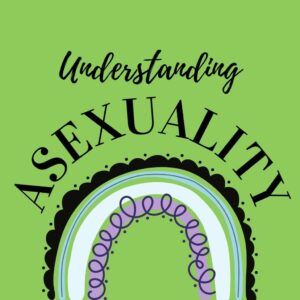Menopause is a natural phase of life experienced by individuals assigned to females at birth, marking the end of their reproductive years. During this time, hormonal shifts occur, bringing about various physical and emotional changes. Asexuality, on the other hand, is an orientation characterized by a lack of sexual attraction. This article explores the intersection of asexuality and menopause, delving into the unique experiences, challenges, and opportunities that arise when these two aspects of life converge.
Contents
Understanding Asexuality

To comprehend the connection between asexuality and menopause, it is crucial to first understand asexuality itself. Asexuality refers to an individual’s lack of sexual attraction to others. It is not a disorder or a condition that requires treatment. Instead, it is a valid sexual orientation, just like heterosexuality or homosexuality.
Within the asexual spectrum, different identities exist. Some individuals identify as aromantic asexuals, experiencing neither sexual nor romantic attraction. Others may identify as gray-asexual or demisexual, where sexual attraction is rare or develops only after a strong emotional bond forms. Understanding these diverse identities is vital in acknowledging and respecting the experiences of asexual individuals.
Menopause and Its Impact
Menopause signifies the end of the reproductive phase in an individual’s life. It typically occurs in their late 40s or early 50s, accompanied by hormonal changes that affect the body and mind.
Menopause is a natural biological process that marks the cessation of menstrual periods for at least 12 consecutive months. It occurs due to a decline in reproductive hormones, particularly estrogen and progesterone. Menopause brings about a variety of physical and psychological symptoms that can vary in intensity and duration.
Common symptoms of menopause include hot flashes, night sweats, mood swings, fatigue, sleep disturbances, vaginal dryness, and reduced libido. These symptoms can significantly impact an individual’s overall well-being and quality of life.
Asexuality and Menopause: Exploring the Connection
The connection between asexuality and menopause is an interesting topic to explore, although it’s important to note that sexual orientation and menopause are distinct aspects of a person’s life and identity.
- Impact of menopause on sexuality: Menopause can bring about hormonal changes that can affect a person’s sexual desire and functioning. Some individuals experience a decrease in sexual desire and arousal due to the decline in estrogen and testosterone levels. Physical changes such as vaginal dryness and discomfort may also contribute to a decrease in sexual interest. These factors can potentially influence the way asexual individuals experience their asexuality during menopause.
- Asexual experiences during menopause: For asexual individuals who have always experienced a lack of sexual attraction or interest, menopause may not necessarily alter their asexual orientation. Menopause-related changes in sexual desire or functioning might not be as significant for asexual individuals compared to those who are sexually attracted to others. However, it’s important to acknowledge that each individual’s experience of asexuality and menopause can vary, and there is no universal pattern.
- Exploration of identity: Menopause, with its associated physical and emotional changes, can prompt individuals to reflect on their identities, including their sexual orientation. Some asexual individuals may find it valuable to reassess their feelings or explore their own experiences during this transitional period. They may seek support from asexual communities, therapists, or resources that specialize in asexuality and menopause to gain a better understanding of themselves.
- Psychological and social factors: Menopause can also bring psychological and social changes, such as shifts in body image, self-esteem, and societal expectations regarding aging and sexuality. These factors can potentially influence an asexual individual’s sense of self and how they navigate their asexual identity during menopause.
Does Asexuality and Menopause Have an Impact?

Asexuality and menopause can have an impact on an individual’s life, but it is important to note that the impact may vary from person to person. Here are some ways in which asexuality and menopause can potentially influence individuals:
- Sexual desire and attraction: Menopause can bring about hormonal changes that may affect sexual desire and attraction. For individuals who identify as asexual, this may not result in significant changes since asexuality is characterized by a lack of sexual attraction. However, some asexual individuals may experience changes in their sexual desire or lack thereof, which can be influenced by hormonal shifts during menopause.
- Physical changes: Menopause is associated with various physical changes, such as vaginal dryness, reduced lubrication, and discomfort during sexual activity. These changes can potentially impact sexual experiences, including those of asexual individuals. It’s important to note that not all asexual individuals engage in sexual activities, so the physical changes may not have a direct impact on their asexuality. However, these changes can still affect their overall comfort and well-being.
- Emotional well-being: Menopause is a significant life transition that can impact an individual’s emotional well-being. It can be accompanied by mood swings, irritability, and emotional fluctuations. Asexual individuals may navigate these emotional changes while also considering their asexual identity and how it aligns with their experiences of menopause.
- Identity exploration: Menopause can prompt individuals to reflect on their identities, including their sexual orientation. Some asexual individuals may use this period of transition to explore their asexuality further, reassess their feelings, or seek additional support and resources. Menopause can provide an opportunity for self-reflection and a deeper understanding of one’s own identity.
- Social perceptions and support: Menopause can bring societal expectations regarding aging, sexuality, and relationships. Asexual individuals may face challenges in navigating these expectations, as asexuality is often misunderstood or unrecognized by society. Finding supportive communities, resources, and healthcare professionals who understand both asexuality and menopause can be valuable during this time.
Navigating asexuality during menopause can be a unique experience for individuals who identify as asexual. Here are some suggestions that may help during this transitional period:
- Self-reflection: Take the time to reflect on your asexual identity and how it may or may not be affected by menopause. Consider your feelings, desires, and experiences, and how they may have changed or remained consistent. Understanding yourself and your own needs can provide a solid foundation for navigating this phase.
- Seek support: Connect with asexual communities, either online or in person, where you can find support and understanding from others who share similar experiences. Engaging in discussions and sharing your thoughts and concerns can be beneficial in gaining insight and finding validation.
- Educate yourself: Learn about the physical and emotional changes that can occur during menopause. Understanding the potential impacts on sexuality, such as hormonal changes and physical discomfort, can help you differentiate between menopause-related changes and your asexuality.
- Communicate with partners: If you are in a relationship, open and honest communication with your partner is crucial. Discuss your asexuality and any concerns or changes you may be experiencing due to menopause. Find ways to maintain emotional intimacy and explore alternative forms of intimacy that align with your needs and comfort levels.
- Seek professional support: Consider consulting with a healthcare professional who is knowledgeable about both asexuality and menopause. They can provide guidance, address any concerns you may have, and help you navigate the physical and emotional aspects of menopause while honoring your asexual identity.
- Self-care and self-acceptance: Focus on self-care practices that promote overall well-being. Engage in activities that bring you joy and fulfillment. Practice self-acceptance by embracing your asexual identity and acknowledging that it is valid, regardless of the changes you may be experiencing during menopause.
Conclusion
Navigating the intersection of asexuality and menopause can be a complex journey. Understanding the unique challenges, experiences, and opportunities that arise during this phase can help asexual individuals find support, acceptance, and self-discovery. By embracing their asexual identity and seeking resources, they can navigate menopause with confidence and resilience.
Life may sometimes be challenging for asexuals, but Online Asexual Counseling can help. Get experienced LGBTQ therapists at PrideMantra: Book a trial LGBTQ therapy session.


